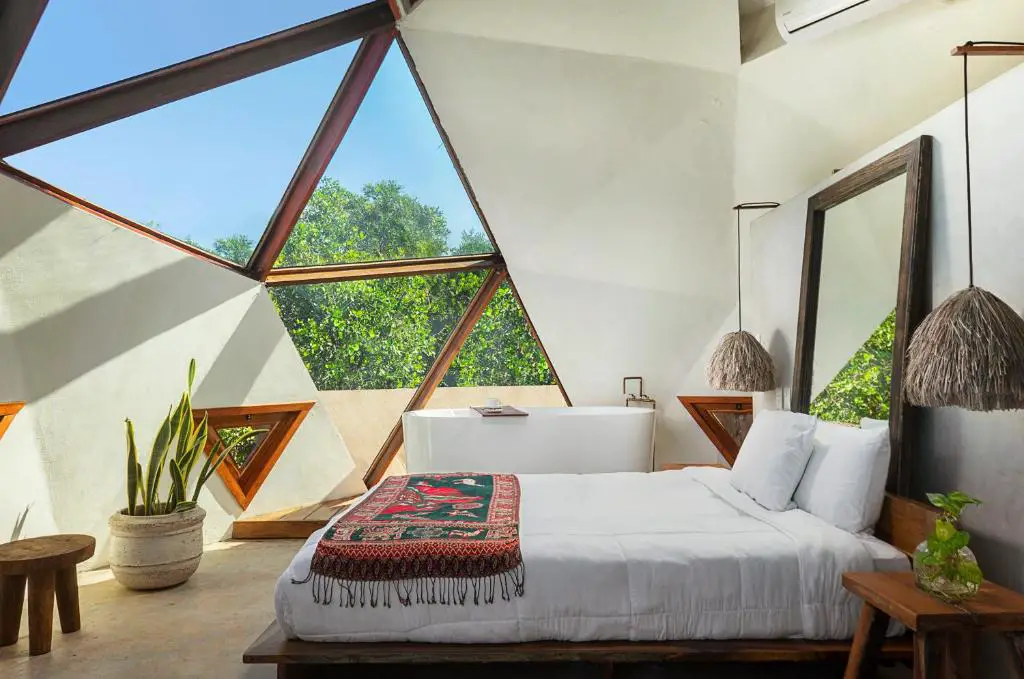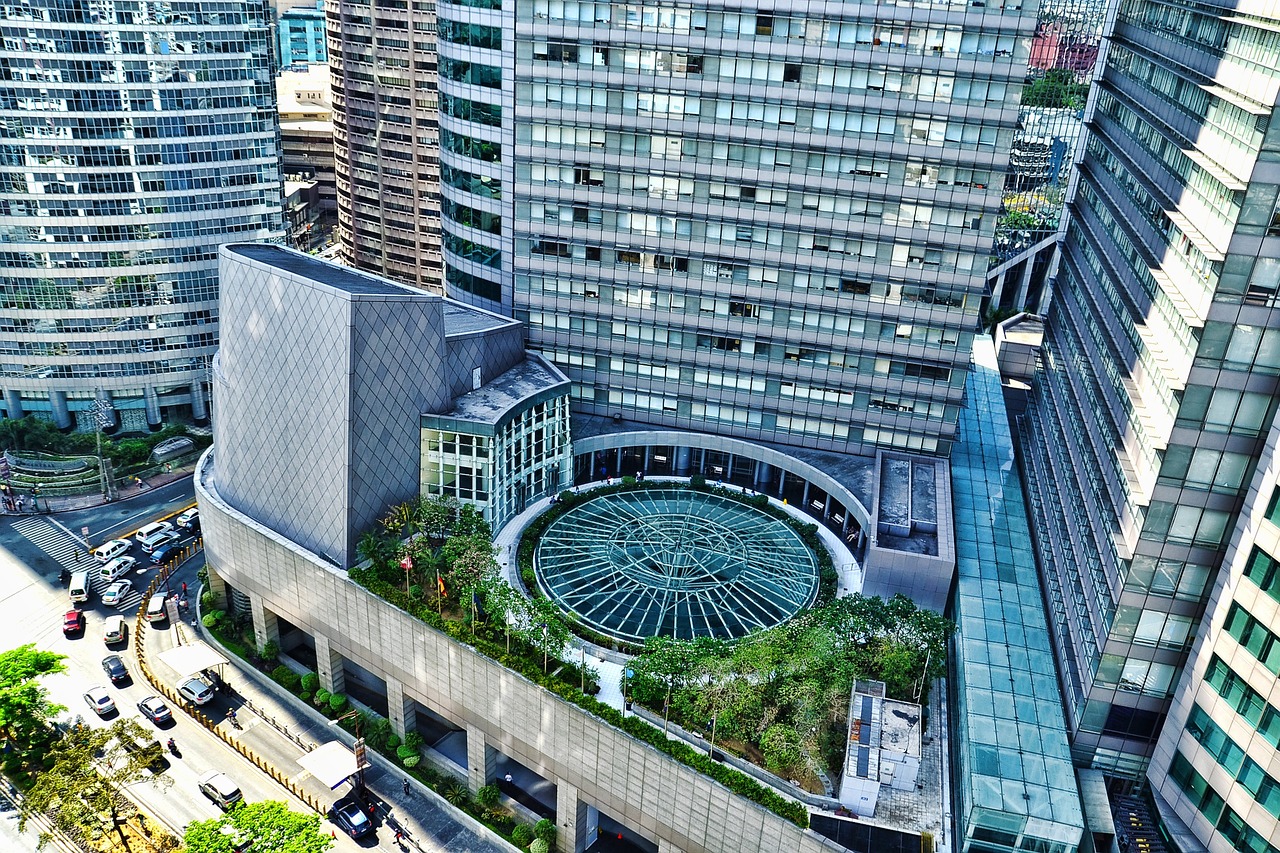Southeast Asia has emerged as a global hotspot for digital nomads, remote workers, and young professionals seeking affordable, community-driven living arrangements. The rise of co-living spaces in this vibrant region offers a unique blend of affordability, cultural immersion, and modern amenities tailored to the needs of a mobile, tech-savvy generation.
Unlike traditional rentals, co-living spaces foster a sense of community, provide flexible leasing options, and often integrate coworking facilities, making them ideal for those balancing work and travel. This article explores the top co-living spaces across Southeast Asia, highlighting their unique features, amenities, and why they stand out as prime destinations for a dynamic, connected lifestyle.
The Rise of Co-Living in Southeast Asia
Co-living is a modern housing concept where individuals share living spaces while enjoying private bedrooms and communal areas designed to encourage interaction, collaboration, and community-building. In Southeast Asia, this trend has gained momentum due to rising property prices, a growing tech-savvy millennial and Gen Z population, and the region’s appeal as a digital nomad hub. According to a 2021 report by Ernst & Young, Southeast Asia’s sharing economy, including co-living, is bolstered by a 63% internet penetration rate and a burgeoning middle class, creating a fertile ground for proptech startups like Rukita and Lyf.
The region’s affordability, diverse cultures, and stunning landscapes—from Bali’s beaches to Chiang Mai’s mountains—make it a magnet for remote workers. Co-living spaces cater to this demographic by offering all-inclusive rentals, high-speed internet, and vibrant communities, often in prime urban or scenic locations. Whether you’re a freelancer, entrepreneur, or traveler, these spaces provide a cost-effective, socially engaging alternative to traditional housing. Below, we dive into some of the top co-living spaces in Southeast Asia, organized by country, that are redefining shared living.
Indonesia: Bali’s Creative and Coastal Co-Living Hubs
Outpost (Canggu and Ubud, Bali)
Outpost is a standout co-living and coworking network in Bali, with locations in Canggu, Ubud, and Ubud Penestanan. Voted the #1 coworking space by Coworker.com for two consecutive years, Outpost combines work and leisure in idyllic settings. Its Canggu location, nestled in the vibrant surf town, offers private rooms and shared bungalows with high-speed internet, ergonomic workspaces, and access to a pool and communal kitchen. Ubud’s Outpost, surrounded by rice fields, provides a serene environment with bamboo-decorated coworking spaces, a library, and Skype rooms.
Outpost’s strength lies in its community-driven approach. Regular events like workshops, networking sessions, and island trips foster connections among residents, making it ideal for digital nomads seeking collaboration. Monthly rates start at around $500 USD, including utilities and coworking access, offering excellent value in Bali’s competitive market.
Roam Bali (Ubud)
Roam Bali, located in the heart of Ubud, transforms a boutique hotel into a co-living haven. It caters to creatives and nomads with zen-like private rooms featuring balconies, high-speed Wi-Fi, and communal spaces for dining and working. Roam emphasizes flexibility, with leases as short as a week, appealing to those exploring Bali short-term. Its community events, such as yoga sessions and cultural tours, immerse residents in Balinese culture. Pricing ranges from $300 to $600 USD per month, depending on room type and stay duration, making it a versatile option for transient professionals.
Dojo Bali (Canggu)
Dojo Bali, located steps from Canggu’s beaches, blends coworking and co-living with a focus on productivity and island life. Its coliving facilities include private rooms with AC, work desks, and access to a beachfront coworking space with 500 Mbps internet. Amenities like zen gardens, a restaurant, and weekly community events—think beach cleanups and sunset yoga—create a balanced lifestyle. Monthly coliving packages start at $400 USD, with coworking access included, making Dojo a favorite for nomads prioritizing work-life harmony.
Thailand: The Land of Smiles and Co-Living
Kohub (Koh Lanta)
Kohub, situated on the tropical island of Koh Lanta, is a gem for digital nomads seeking a quieter, beachside co-living experience. Its beach bungalows come with AC, Wi-Fi, work desks, and private balconies, starting at 45,500 THB (approximately $1,300 USD) per month, including two daily meals. The coworking space, steps from the beach, features high-speed internet, call booths, and meeting rooms. Kohub’s community shines through its social events, like communal lunches and movie nights, fostering lasting friendships. Its organic garden and “zen zone” add a unique touch, making it a haven for relaxation and productivity.
Lyf (Bangkok and Phuket)
Lyf, a co-living brand by The Ascott Limited, operates in Thailand’s bustling capital, Bangkok, and the beachside paradise of Phuket. Launched in 2016, Lyf targets next-generation travelers with flexible leases (weekly or monthly) and stylish, fully furnished rooms. In Bangkok’s Sukhumvit district, Lyf offers private rooms with high-speed Wi-Fi, communal kitchens, and social spaces hosting events like mixology classes. Phuket’s Lyf properties provide beach proximity and amenities like pools and fitness centers. Prices range from $300 to $800 USD per month, appealing to both short-term visitors and long-term residents.
Tiki Beach (Koh Phangan)
Tiki Beach on Koh Phangan is a social hub for digital nomads, combining co-living with a beachfront coworking space. Private and shared rooms are available, with monthly rates starting at $350 USD. Amenities include a beach bar, swimming pool, gym, and sports courts, alongside high-speed internet and call booths. Tiki Beach hosts events like hikes, island trips, and live music Saturdays, and it gained fame for the 2024 Digital Nomad Adventure Non-Conference. Its vibrant community and stunning ocean views make it a top pick for those blending work and play.
Vietnam: Emerging Co-Living Destinations
SPICED (Ho Chi Minh City)
Formerly Start Campus, SPICED in Ho Chi Minh City’s District 2 is a boutique co-living and coworking space tailored for remote workers. It offers private bedrooms, high-speed Wi-Fi, a garden, pool, and rooftop terrace, with monthly rates starting at $187 USD. SPICED’s community-focused approach includes coaching, investor networking, and events like BBQs, creating a supportive environment for entrepreneurs. Its location in a vibrant expat hub ensures easy access to cafes, restaurants, and public transport, making it a top choice for urban nomads.
Hub Hoi An (Hoi An)
Hub Hoi An, overlooking rice fields in Vietnam’s charming Hoi An, combines co-living and coworking in a serene setting. Private rooms with AC and work desks start at $400 USD per month, with access to a coworking space featuring high-speed internet, Skype booths, and a lounge. The community thrives on social events like communal dinners and cultural tours, ideal for connecting with like-minded nomads. Booking in advance is recommended during high season due to high demand.
Da Nang Coffee Co-Living (Da Nang)
A unique addition to Vietnam’s co-living scene, this Da Nang project integrates local coffee culture into its communal spaces. Located downtown, it offers private rooms with Wi-Fi and access to a coworking space with call booths and meeting rooms. Monthly rates start at $300 USD. The collaboration with Vietnamese coffee roasters, using robusta beans and traditional phin filter brewing, creates a culturally immersive experience. Its relaxed vibe and proximity to beaches make it a rising star for digital nomads.
Philippines: Island Life for Nomads
Lexias Hostel (Siargao, Boracay, El Nido)
Lexias Hostel, with locations in Siargao, Boracay, and El Nido, is a pioneer in the Philippines’ co-living scene. Designed for digital nomads, it offers private and shared rooms starting at 4,800 PHP (around $85 USD) per month. Amenities include infinity pools, tropical gardens, on-site restaurants, and coworking spaces with high-speed internet. Siargao’s surfing culture and El Nido’s island-hopping opportunities add to the appeal. Lexias fosters community through events like beach parties and workshops, making it perfect for nomads seeking adventure and productivity.
Cambodia: Affordable and Authentic
AngkorHUB (Siem Reap)
AngkorHUB in Siem Reap blends co-living and coworking in a vibrant, culturally rich setting. Private rooms with Wi-Fi and work desks start at $250 USD per month, with all-inclusive packages including access to a coworking space and two daily meals. Amenities like high-speed internet, a communal kitchen, and regular events—think temple tours and community lunches—create a welcoming environment. Its proximity to Angkor Wat makes it a unique choice for nomads seeking history and affordability.
SmallWorld (Phnom Penh)
SmallWorld in Phnom Penh’s Tuol York district is a homegrown co-living and coworking space catering to expats and local youth. Private rooms start at $200 USD per month, with access to fast Wi-Fi, personal lockers, and a casual work environment. Community events like networking sessions and cultural workshops foster connections. Its affordability and central location make it ideal for budget-conscious nomads exploring Cambodia’s capital.
Singapore: Urban Sophistication
Hmlet Singapore
Hmlet is a leading co-living provider in Singapore, offering fully furnished rooms in prime locations like Cuppage Terrace and Prinsep Street. Monthly rates range from $800 to $1,500 USD, reflecting Singapore’s higher cost of living. Rooms come with private bathrooms, high-speed Wi-Fi, and access to communal kitchens and social spaces. Hmlet’s community events, such as networking mixers and wellness workshops, attract expats and young professionals. Its flexible contracts and all-inclusive pricing make it a top choice for urban nomads.
Lyf Funan Singapore
Lyf Funan, located in Singapore’s vibrant Funan Mall, offers a modern co-living experience with private rooms starting at $1,000 USD per month. Amenities include high-speed Wi-Fi, communal kitchens, and social spaces hosting events like art jams and cooking classes. Its central location provides easy access to public transport and cultural hubs, making it ideal for professionals seeking convenience and community in a fast-paced city.
Malaysia: Penang’s Rising Star
Penang Co-Living Spaces
Penang, known for its cultural heritage and affordable living, is emerging as a co-living destination. Spaces like those offered by local operators provide private rooms starting at $250 USD per month, with access to coworking areas, high-speed internet, and communal kitchens. Penang’s vibrant expat community, street food scene, and proximity to beaches make it a haven for nomads. Community events like heritage walks and food tours enhance the experience, blending work with cultural exploration.
Why Choose Co-Living in Southeast Asia?
Co-living in Southeast Asia offers unparalleled benefits for digital nomads and remote workers. Affordability is a key draw, with monthly rates often 50% lower than traditional rentals in urban centers. For example, while a studio apartment in Singapore might cost $2,000 USD, co-living spaces like Hmlet offer rooms for half that price. Community is another major advantage, with spaces like Kohub and Tiki Beach hosting events that foster networking and friendships.
Flexibility is also critical. Unlike traditional leases, co-living spaces offer weekly or monthly contracts, ideal for transient professionals. Amenities like high-speed internet, coworking spaces, and all-inclusive utilities cater to remote work needs, while locations in urban hubs or beachside paradises provide diverse lifestyle options. Finally, the cultural immersion offered by spaces like Da Nang’s coffee-focused co-living or AngkorHUB’s temple tours enriches the experience, blending work with adventure.
Challenges and Considerations
While co-living offers many advantages, challenges exist. Privacy can be limited in shared spaces, though most providers offer private bedrooms. Noise levels and differing lifestyles among residents may require adjustment. Additionally, high-season demand in popular destinations like Bali or Koh Phangan can lead to availability issues, so booking in advance is recommended. Finally, costs in premium locations like Singapore can be steep, though still more affordable than traditional rentals.
Conclusion
Southeast Asia’s co-living spaces are transforming the way digital nomads, remote workers, and young professionals live and work. From Bali’s beachside havens like Outpost and Dojo to Thailand’s vibrant Kohub and Tiki Beach, these spaces offer affordability, community, and flexibility in some of the world’s most stunning destinations. Vietnam’s emerging hubs like SPICED and Hub Hoi An, alongside Cambodia’s AngkorHUB and Singapore’s Hmlet, cater to diverse needs, blending urban convenience with cultural immersion. Whether you’re seeking a bustling city vibe or a tranquil beachside retreat, Southeast Asia’s co-living scene has something for everyone. Embrace the opportunity to live, work, and connect in this dynamic region, and discover why co-living is the future of modern living.














